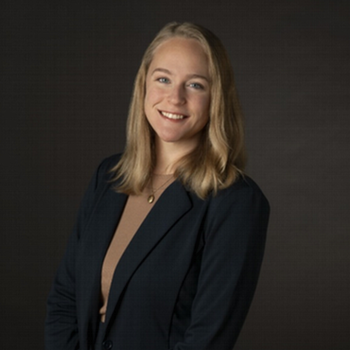Human Rights as a Pathway to Law School
Planning your path to law school starts with selecting the right university and undergraduate major.
Studying Human Rights at The University of Winnipeg equips students with critical thinking, writing, and research skills, along with opportunities to gain valuable hands-on experience, providing a strong foundation for law school. A degree in Human Rights can be your first step towards a rewarding legal career.
Did you know that the Human Rights program at Global College has faculty members trained in law: Dr. Shauna Labman and Dr. Saad Khan?
Dr. Shauna Labman completed her law degree at the University of Victoria in 2003, her Master of Laws at the University of British Columbia in 2007, and her PhD in the Faculty of Law at UBC in 2012. She was called to the Law Society of Upper Canada (now the Law Society of Ontario) in 2004 and was called to the Law Society of Manitoba in 2017.
Dr. Saad Khan completed his law degree in 2006 at the University of Karachi S.M. Law College in Karachi, Pakistan in 2006 and his Master of Laws at Georgetown University Law Center in Washington, D.C. in 2009. He completed his PhD in Peace and Conflict Studies at the University of Manitoba in 2019.
Human Rights & Law School
Although law schools do not require a specific undergraduate major, choosing a major that you are interested in and passionate about can help you succeed.
Studying Human Rights at The University of Winnipeg’s Global College offers students a valuable opportunity to build key skills that are essential for success in law school.
A degree in Human Rights fosters a nuanced understanding of justice, ethics, and international legal frameworks by providing opportunities for students to engage with complex social and legal issues through multiple ideological and disciplinary frameworks, learn to construct persuasive arguments, and develop research and writing skills that are essential for legal studies.
Did you know that the Human Rights program features extensive law-related content?
Our core courses allow students to explore:
- The foundations of international law, including major conventions, treaties, and legal principles
- Canadian human rights legislation at the federal, provincial, and municipal levels
- The Canadian Charter of Rights and Freedoms
- Provincial, territorial, and national human rights codes and commissions
- The historical development of human rights law in Canada
- Transitional justice mechanisms in post-conflict societies, including truth commissions, courts, and tribunals
- Rights-based approaches to law and public policy
In addition to completing core Human Rights courses, students who major in Human Rights are also able to choose from a wide range of elective options.
Situated in Global College, the Human Rights program offers numerous opportunities for students to get involved in the community and take advantage of experiences outside of the classroom, including by volunteering with Global College’s student group, the Global College Student Advisory Council (GCSAC), attending talks and events related to human rights, and completing a hands-on practicum placement. Students planning to attend law school may choose to complete a practicum placement at a local non-profit organization that focuses on legal issues, such as the Legal Help Centre.
Many of our alumni have gone on to law school and successful legal careers, including pursuing legal studies at the University of Manitoba and other law schools across Canada, including McGill University, The University of British Columbia, the University of Calgary and the University of Ottawa.
Alumni Success Stories
Graduates of the Human Rights program are well equipped for law school. Human Rights program alumni Emily Rempel and Leah Neufeld both attribute their success in law school to the strong foundation and critical skills they developed during their time in the program.

Emily Rempel – University of Manitoba Faculty of Law, JD 2021
Emily now works as legal counsel at the University of Manitoba.
Emily graduated from the Human Rights program with a four-year BA in 2017.
Throughout her studies, Emily had the opportunity to engage in both academic learning and practical experiences that were key to shaping her career path, including participating in field courses and completing an international practicum in Guatemala. She credits these experiences as solidifying her commitment to human rights work and teaching her invaluable lessons about ethical development work
After completing her undergraduate degree, Emily worked as an investigator for the Manitoba Human Rights Commission, where she was responsible for investigating discrimination complaints under the Human Rights Code (Manitoba) following which she decided to pursue her law degree.
Emily describes her time in the Human Rights program as instrumental in her journey to becoming a lawyer, explaining that it taught her how to approach conflicts with greater empathy and understanding. Reflecting on how the program shaped her career, she shares,
“The Human Rights program teaches you how to think differently, how to think creatively, how to think beyond just yourself and your own lived experiences.”

Leah Neufeld – McGill University Faculty of Law, BCL/ JD 2025
Leah is currently finishing her joint BCL/ JD at McGill University and will be graduating in December 2025. She will be starting an articling position with Winnipeg law firm Thompson Dorfman Sweatman LLP in June 2026.
Leah graduated from the Human Rights program with a four-year BA in 2021. She credits her human rights education with providing a strong foundation for legal studies, explaining that the program sharpened her critical thinking skills, expanded her understanding of structural inequities, and taught her to examine laws and policies through a human rights lens. Highlighting how the ability to question information and recognize underlying biases has been essential in her law studies, she explains,
"My Human Rights degree taught me that human rights principles matter even in areas of law where they are not traditionally emphasized. Bringing human rights advocacy into areas like property law or income tax law sparks important conversations and new ways of thinking that matter in both the classroom and real-world practice. This degree prepared me to approach each course through an intersectional and multidisciplinary lens, while grounding me in the reminder that real people are at the heart of every case."
Leah valued how the program connected classroom learning with real-world issues, particularly those affecting Winnipeg’s Indigenous communities and newcomer populations. A standout moment in her Human Rights degree was her practicum placement at N.E.E.D.S. Inc., an organization that helps newcomer children, youth, and families integrate into Canadian life. This hands-on experience gave Leah a profound perspective on the challenges faced by newcomers to Winnipeg and her courses allowed her to deepen her understanding of how history and policy shape contemporary human rights landscapes.
